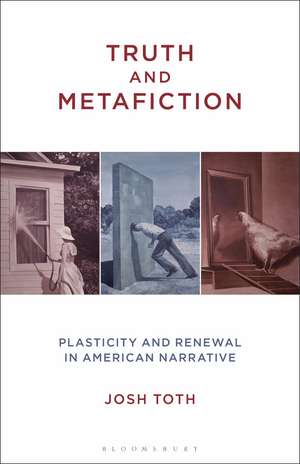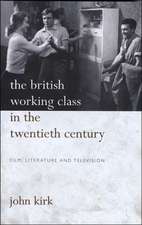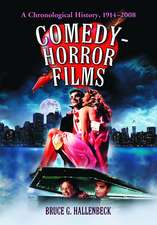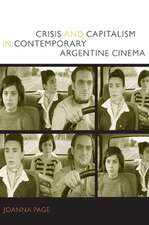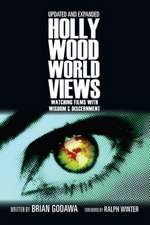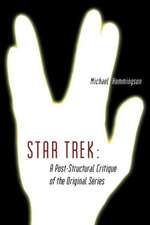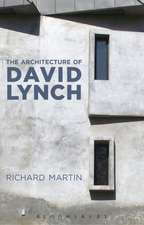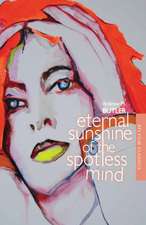Truth and Metafiction: Plasticity and Renewal in American Narrative
Autor Professor or Dr. Josh Tothen Limba Engleză Paperback – 13 ian 2021
| Toate formatele și edițiile | Preț | Express |
|---|---|---|
| Paperback (1) | 158.82 lei 3-5 săpt. | |
| Bloomsbury Publishing – 13 ian 2021 | 158.82 lei 3-5 săpt. | |
| Hardback (1) | 470.85 lei 3-5 săpt. | +24.81 lei 7-13 zile |
| Bloomsbury Publishing – 13 ian 2021 | 470.85 lei 3-5 săpt. | +24.81 lei 7-13 zile |
Preț: 158.82 lei
Preț vechi: 172.95 lei
-8% Nou
Puncte Express: 238
Preț estimativ în valută:
30.39€ • 31.81$ • 25.15£
30.39€ • 31.81$ • 25.15£
Carte disponibilă
Livrare economică 15-29 martie
Preluare comenzi: 021 569.72.76
Specificații
ISBN-13: 9781501351730
ISBN-10: 1501351737
Pagini: 264
Dimensiuni: 140 x 216 x 24 mm
Greutate: 0.3 kg
Editura: Bloomsbury Publishing
Colecția Bloomsbury Academic
Locul publicării:New York, United States
ISBN-10: 1501351737
Pagini: 264
Dimensiuni: 140 x 216 x 24 mm
Greutate: 0.3 kg
Editura: Bloomsbury Publishing
Colecția Bloomsbury Academic
Locul publicării:New York, United States
Caracteristici
At its core this is a book that explains how our ever-changing cultural attitude to stories and narrative reflects our changing attitude to truth
Notă biografică
Josh Toth is Associate Professor of English at MacEwan University, Canada. He is author of Stranger America: A Narrative Ethics of Exclusion (2018) and The Passing of Postmodernism: A Spectroanalysis of the Contemporary (2010).
Cuprins
Acknowledgments Part I: Theory 1. Metafiction Contra Postmodernity Meta After Meta Irony and the Unpostmodern From Oscillation to Sublation Historioplastic Metafiction One Last Time, Again 2. Speculative Plasticity Divine Plasticity Metafictional Subjects Neomaterialism, or Reading Poorly Writing Well, or the Ethics of SpeculationPart II: Text 3. The Time of Plascencia and Egan (and Others) Grasping the Future Textual RealityIrony's Ghosts The Time of EA 4. Undoing Wounds in Danielewski's House of Leaves Spiraling ClosureTraumatic AbsenceReturning "the Real""A Snail's Place"? Recovery without ScarsPart III: Screen 5. Affective Debts in Contemporary Film Forming History Affective InterruptionEconomimetic CollapseThe Other Account6. Historioplasticity in Tarantino (and Nolan)History's Suture Performance. en Abyme"Facts, not [Dreams]"Once Upon a Time. In ConclusionWorks Cited
Recenzii
Bringing out the heavy philosophical artillery of the 21st-century 'return to Hegel,' Toth makes a very strong case for recuperating metafiction in the era since postmodernism. Deeply thoughtful and thought-provoking, Toth's book is bound to shift the current scholarly discussion about metafictional narrative.
Building on his influential work on postmodernism, Josh Toth takes up in his new and trailblazing monograph the intricate and timely issue of metafiction and its proliferation after the postmodern heyday, making a compelling case for postmodernism's complex transformation in today's U. S. metafictional prose and cinema. Thoroughly researched, impeccably argued, and superbly written, Truth and Metafiction is and will remain for years to come required reading for anyone interested in why and how formally and thematically self-aware fiction and film ultimately, if tentatively, do give us access to the world's concreteness, affective substance, authenticity, and truth.
Truth and Metafiction confirms Toth as one of the most insightful and ambitious readers of contemporary fiction, film, and philosophy. As an account of what has happened to American literature and cinema in the post-Truth era, and how a rediscovery of Hegel might save us from our skepticism, this formulation of "historioplastic metafiction" is astute and compelling.
Building on his influential work on postmodernism, Josh Toth takes up in his new and trailblazing monograph the intricate and timely issue of metafiction and its proliferation after the postmodern heyday, making a compelling case for postmodernism's complex transformation in today's U. S. metafictional prose and cinema. Thoroughly researched, impeccably argued, and superbly written, Truth and Metafiction is and will remain for years to come required reading for anyone interested in why and how formally and thematically self-aware fiction and film ultimately, if tentatively, do give us access to the world's concreteness, affective substance, authenticity, and truth.
Truth and Metafiction confirms Toth as one of the most insightful and ambitious readers of contemporary fiction, film, and philosophy. As an account of what has happened to American literature and cinema in the post-Truth era, and how a rediscovery of Hegel might save us from our skepticism, this formulation of "historioplastic metafiction" is astute and compelling.
